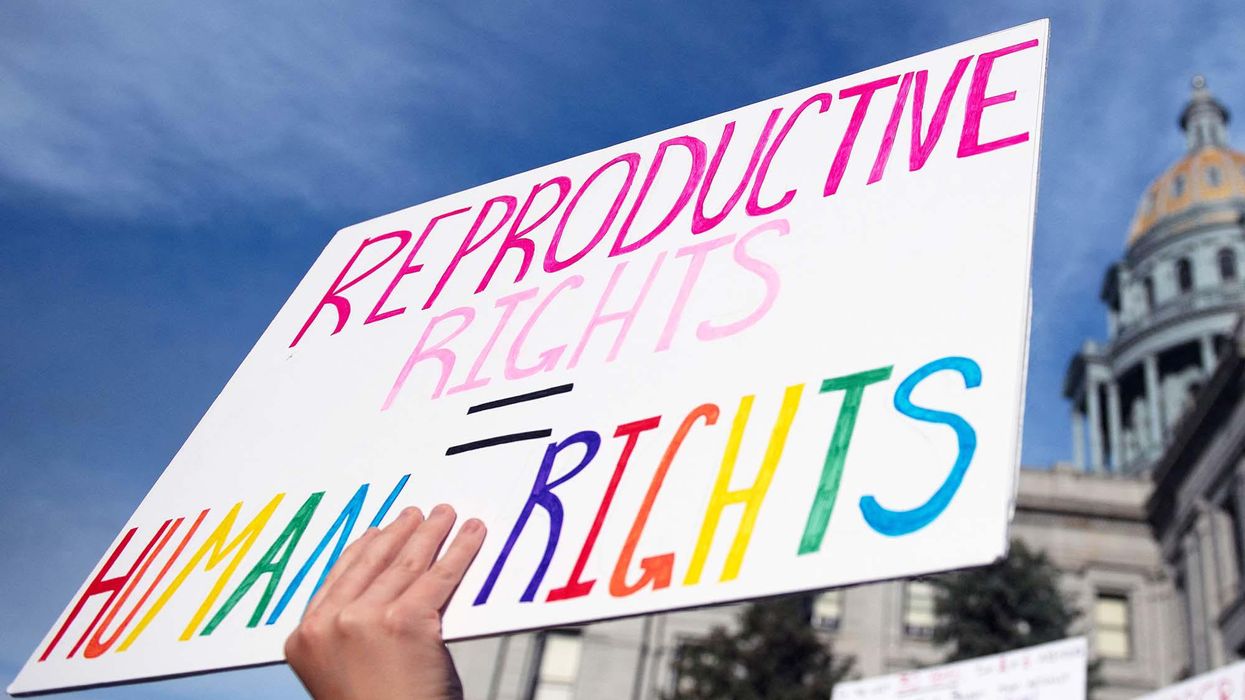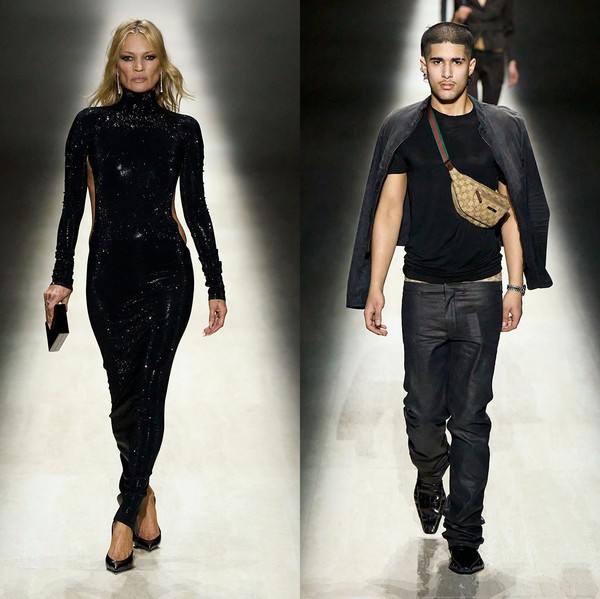Self-Care in a Post-'Roe' World: How People Are Coping With the Loss of Abortion Rights
“It’s not about protecting the unborn. It’s about control. And that is what makes this so difficult to process.”

Ciara Hart, 28, was on vacation visiting her parents in Florida when she found out that the Supreme Court overturned Roe v. Wade. “I remember trying to get dressed to hang out by the pool and I became immediately sick. I don't think I ate the [rest of the] day.” Hart lives in Louisiana, a trigger ban state where Black women like herself are four times more likely to die from childbirth than white women. The U.S. is already the most deadly place in the developed world to have a baby, disproportionately affecting low-income people of color. But Louisiana’s Black maternal mortality rate outranks the national Black mortality rate by more than 30 percent—a grim statistic that will inevitably worsen with abortion bans.
There’s no sugarcoating the stark reality that forced birth means more people will die. With the legality of performing an abortion to save a pregnant person’s life varying by state and murky definitions of “life-threatening”— forcing doctors to wait until the 11th hour to save patients—being pregnant today comes with heightened risk. “I'm coming to the end of my rope,” says Antoinette Chanel, a 38-year-old indie publisher and mom of two. She lives in Florida, where billboards of “talking” fetuses haunt her as she drives around town. “I know I live in a state that already didn’t like abortion. But now that [Roe v. Wade has been overturned] it’s free to openly hate abortion.” Chanel has an IUD that’s causing complications, but is now scared to get it removed because “three kids would financially ruin us.”
What does coping with the loss of bodily autonomy look like in a post-Roe world? For Hart, president of the Young Democrats Club of Louisiana, self-care means making the time to cook. “It’s so therapeutic to get lost in the food,” Hart says. Cooking frees up her mind so she’s able to come up with a plan to fight for abortion rights. “It helps to find something that brings you joy in this crazy country that wants to rob you of it,” she says. “ Prioritizing yourself is probably the most radical thing that you can do.”
To honor this sentiment, Coveteur asked five people across the country what they’ve been doing for self-care since SCOTUS overturned Roe v. Wade, and how they’re mobilizing in their own communities to fight for reproductive justice.
Kristjana Hillberg, PR Strategist, Age 32, She/Her | South Dakota
Take us back to the day you found out the Supreme Court overturned Roe v. Wade.
“I have an almost 10-year-old daughter. I picked her up from her dad's house [that day] and I was trying to find the words and the phrasing for a nine-year-old. But she caught on so quickly: ‘What you're saying is that if I got pregnant and I didn't want the baby or couldn't take care of the baby, that I would HAVE to have that baby?’ And I [said], ‘Yes, you now do not have control over making that choice.’ And she was like, ‘That is so unfair. That doesn't make any sense. Why wouldn't I be able to make a choice about my own body and what's best for me?’ I [said], ‘You're exactly right. It doesn't make sense. And it is completely unfair.’ I didn't even know what else to say other than, ’I'm feeling really sad about this right now. Sad for my fellow sisters and friends and women everywhere. And [for] you and [your baby sister]. The world's going to look different for you.”
What does it feel like living in a trigger ban state, where the abortion ban took effect immediately following the Supreme Court’s decision?
“Living in a state with a governor who is so adamant about the bans being the highest they can be makes me feel unsafe, worried, angry, and a little fearful. No one should ever have to carry a child by force, or [get an abortion] knowing they could go to jail or lose their life.
I was raised in a very strict religion that is pro-life with no exception. It wasn't until a few years ago that I started to explore my own stance and came to find that I'm pro-choice on everything. As a mother of three, I remember having a conversation with my husband around having more children and him choosing to get a vasectomy. If [it didn’t work and I got pregnant], I would choose to get an abortion. My mental health and capacity would be taking a back seat if I chose to move forward with [another] pregnancy.”
Is there anything you’ve found helpful for coping with your rage and heartbreak?
“I co-host a female-focused [online] course called “Step Into Your Magic.” [After the Roe v. Wade decision] we said, ‘If you want to come and share your thoughts and feelings, we're here for you.’ But a lot of women [said] ‘I just want to take a break. I'm feeling so much anger and sadness and worry and doom. I just need to not be on social media. I need to be alone and let myself process my emotions.’ And I think that is one way to truly heal—to let ourselves feel all of the feelings. I saw something that Glennon Doyle posted that said something about that. Right now, just feel what you feel and then, let's fuckin' fight.”
Emel Khan, Finance, Age 26, She/Her | Texas
You live in Texas, where S.B.8 went into effect last September, outlawing abortions after six weeks before many people even know they’re pregnant. Was the Supreme Court overturning Roe v. Wade still a shock to you?
“I was disappointed, but not the very least surprised. It feels unreal—like we're living in a bad dream that we can't wake up from. Women's bodies are policed more than gun control in this country. It's insane that these people get to rule our bodies and it's all rooted in religion, but more specifically, Christianity. America is supposed to have the freedom to practice whatever religion you want. I'm not Christian, so I don't want laws that [impose] on my body to be rooted in a religion that I don't even practice.”
What are you doing to take care of yourself emotionally since Roe v. Wade was overturned? Do you have any advice to share with others who are struggling with the reality of the decision?
“I'm someone who deals with anxiety and I have to limit the amount of news I read throughout the day. With the pandemic, inflation, the recession, and now this, it feels like our world is constantly on fire. For me, it's easier to digest what's going on in the world towards the end of the day as I'm winding down. Reading news in the morning just sets a bad tone for me for the rest of the day. [My advice is] to go outside, get some air, journal, and try to limit the intake of news for your own sanity.”
Right now, it feels impossible to move forward. Is there any small action step you suggest we take while still processing our anger and grief?
“It’s wild to even say, but [my best advice is to] begin to set aside a certain amount of money that you could use in a moment's notice if you need to travel out of state for an abortion. Similar to how you have a savings account and a travel fund and down payment funds. It doesn’t have to be huge, but it should be something. It’s important because you never know when either you or a community member [might need it].”
s.e. smith, Writer & Editor, Late 30s, They/Them | California
You live in California, where abortion is still legal and abortion protections are guaranteed for people from out of state. What was your response to hearing about the Supreme Court’s decision to overturn Roe v. Wade?
“There was a lot of connecting with people and seeing what support they needed, [such as] talking with someone in a red state about how to get a minor out of there so they could get an abortion before things get really weird. A lot of my organizing work really takes place offline. But I also keep an eye on the rhetoric [online]. One area where people tend to really fuck up is integrating trans people into the [abortion] conversation.”
What do people need to know about using inclusive language when discussing abortion so we can all be united in our mission to fight back against forced birth?
“You know, I was talking to my dad a couple of weeks ago about abortion access, intentionally using inclusive language. And he said, ‘Well you're not just saying 'women' and I said, ‘Well, because women aren't the only people who can get pregnant.’ And there was this little pause and he said, ‘Huh, I hadn't really thought of that.’
I think that the abortion rights movement, and the reproductive justice movement in particular, has done a really good job of [being inclusive], but we're still not there. And right now, that conversation is really being complicated, quite frankly, by TERFs. The basic precept is anybody who has a uterus and is fertile could potentially get pregnant.
The majority of people who are going to need abortion services in their lifetime are cis women. When we talk about abortion, it’s really important that we understand and center the fact that abortion is about a war on women. However, there are also other communities who are affected by attacks on abortion access. In addition to just the baseline, ‘I need an abortion and I can't get it,’ there's also ‘I need an abortion, and people are saying I don't because I’m a man.’ Or ‘I need an abortion and even though I went to Planned Parenthood because I've heard that they're inclusive, everybody kept calling me she and the pronouns I use are they.’
We want to make sure to talk about the centuries of misogyny and oppression that targeted women very specifically and have influenced where we are now. But to also note that this is an issue that is larger simply than cis women.”
What advice do you have for people who want to take action right now, but don’t know where to start?
“Everybody wants to be the hero, [but] helpers are really important. [For instance], something I tell a lot of disabled people is that if protesting is unsafe for you, we still need someone at home to be the phone person so if someone gets arrested, you have someone by the phone with the answers. You have someone with all of our contact information and attorney information, copies of people's IDs, [information on] what people are allergic to, and what they need. It sounds super boring to be the dispatcher, but that is crucial, lifesaving work.”
D. Channing Muller, Marketing Consultant, Age 37, She/Her | Tennessee
You live in a state where a six-week abortion ban took place on June 28, just four days after the Supreme Court overturned Roe v. Wade. How are you coping?
“My gut reaction is, ‘Not well,’ but then I wonder: What would be considered coping well after you’ve been told you are not legally allowed to make a decision about what happens inside your uterus? Let me be very clear on this: I want kids. I underwent a majorly invasive surgery called an abdominal myomectomy in March to increase my chances of being able to carry children. But the choice of when I have kids is my choice, not the government’s. I could spew for days about how hypocritical it is to be so focused on the unborn when those same beings are ignored as soon as they can breathe on their own. It’s not about protecting the unborn. It’s about control. And that is what makes this so difficult to process.”
Is there anything you’ve found to help with processing? What are you doing to take care of your mental health?
“Marathon training. My last training run was much faster than it needed to be, but I was so angry. When I was done running, I sat in my car and I cried because I was like, in a world that I cannot control, I can control getting up and going for a run and how well I perform. The one thing I can control is my body—oh wait, they're taking that away. The parallel hit me and all we can do is the next right thing. In Frozen 2, there's a whole song Anna sings towards the end and it's like, “What do you do? You do the next right thing.” My therapist says we can't focus on all the other things that we don't know. So what is one thing you can do right now?”
What’s your next step?
“A company I love that makes candles is donating the proceeds [to help fund abortions]. I can do that thing—support a small business—and give to a cause that I care about.”
Meaghan Thomas, Small Business Owner, Age 39, She/Her | Kentucky
What was your reaction when you first found out that the Supreme Court banned the right to have an abortion?
“I was listening to NPR and when it [was announced] I just screamed. I have an online organic spice shop, and we grind them and make them by hand. My partner was downstairs making spices, and it can be really loud. I was upstairs, off the factory floor making packages to send out, and I screamed so loud that he could hear me over the equipment. Then I was crying. When we left for the day to go to the post office to drop off orders, on the inside I was like, if anyone cuts me off, or if I see someone with a ‘Yay Roe v. Wade is down’ sign, I'm going to freak out and start screaming because the core concept of freedom is being attacked.”
Besides screaming and crying, is there anything you’ve done that has made you feel better, or more capable of mobilizing to take action?
“As soon as I got home from the post office, I painted a few protest signs [to put up next to] a dinosaur statue on our front lawn. I just wanted my home and our dino to scream, ‘THIS IS NOT RIGHT.’ It makes me feel better knowing that when I’m sitting in my house, if someone passes by, they know that we don't stand for this.”
You live in a state where a trigger ban took place immediately following the Dobbs v. Jackson Women's Health decision, but has since been successfully blocked (at least temporarily). Do you feel an extra sense of urgency to take action, knowing that your rights are so up in the air?
“I’m really, really happy to find out that the ACLU successfully [blocked the ban]. But shame on the Supreme Court. Shame on all the fools who support [the abortion ban] and think their rights aren't threatened by this. I think we're in a strange time now where we're throwing money at other people solving the problem. All I know to do is either go to a march and protest or give money to somebody. I donated to the Kentucky Health Justice Network, which helps people find access to abortion, and has been planning like, ‘Okay, if this happened, how do we get people to Illinois?’ But it’s not enough. I have a friend doing a bake sale to raise funds for abortion access, so we'll be donating baking spices to them to help with that. My partner and I are figuring out what we can do with our business. We’re thinking about developing a limited-edition spice blend where the profits go to the ACLU or the Kentucky Health Justice Network. We're going to take a stance. We're going to do something.”
These interviews have been edited and condensed for length and clarity.




